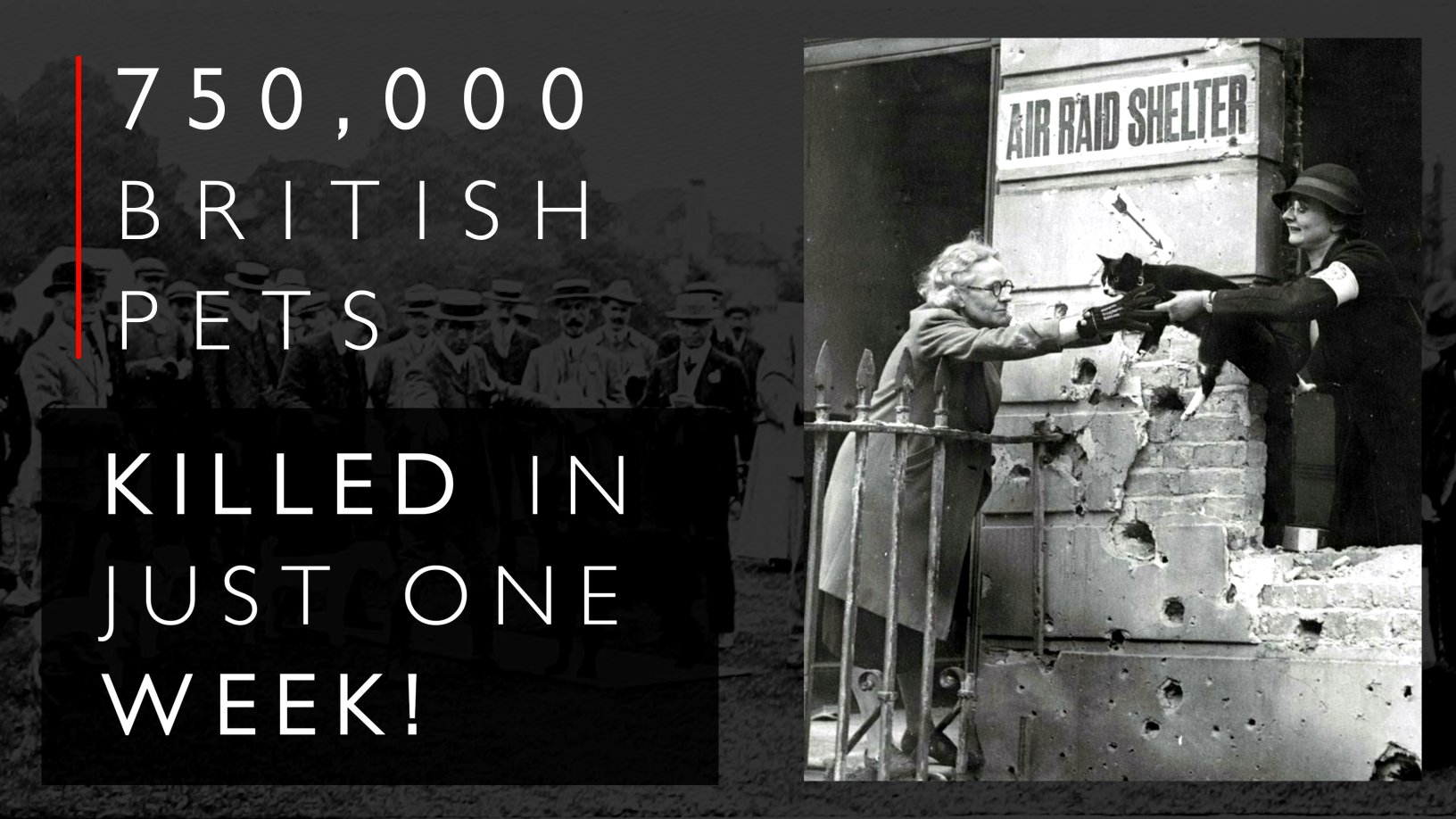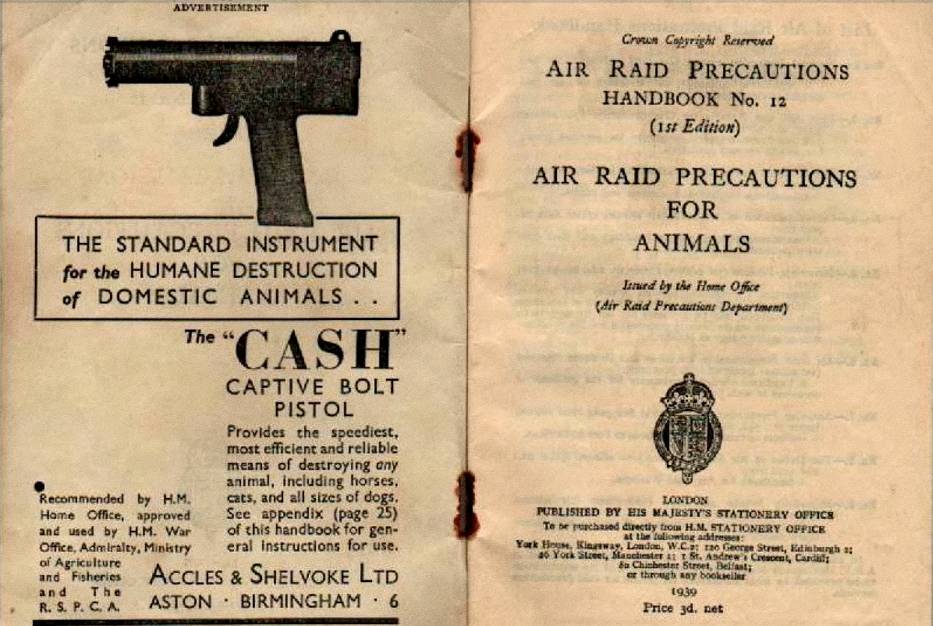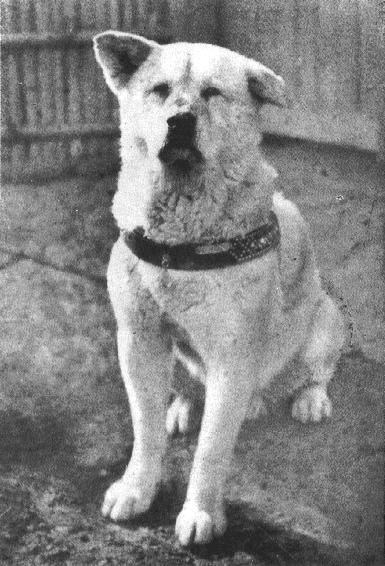Everyone knows in regards to the Holocaust ― the genocide of the European Jews that came about throughout World Battle II. Between 1941 and 1945, throughout German-occupied Europe, Nazi Germany and its collaborators systematically murdered some six million Jews, round two-thirds of Europe’s Jewish inhabitants. To this present day, it has remained one of many darkest pasts of humanity.

However simply earlier than the Holocaust, one other comparable occasion occurred in Britain, although this time with pets. In 1939, fearing meals scarcity throughout wartime, the British authorities organized the killing of 750,000 pets throughout Britain inside only one week. Right now the tragedy is named the British Pet Bloodbath.
The British Pet Bloodbath of 1939
In 1939 the British Authorities shaped the National Air Raid Precautions Animals Committee (NARPAC) to resolve what to do with pets earlier than battle breaks out. The committee was fearful that when the federal government might want to ration meals, pet homeowners would resolve to separate their rations with their pets or go away their pets to starve.
In response to that worry, NARPAC printed a pamphlet titled “Recommendation to Animal Homeowners.” The pamphlet instructed transferring pets from the large cities and into the countryside. It concluded with the assertion that “If you happen to can’t place them within the care of neighbours, it truly is kindest to have them destroyed.”


The pamphlet additionally contained an commercial for a captive bolt pistol that might be used to humanely kill the pet. Humanely! Is there any ‘humanely’ approach to kill a pet??
All of a sudden, beloved pets, canines, cats and different animals, have been killed by their homeowners. Lengthy queues shaped in an orderly style exterior numerous vet practices all through the nation, canines on leads and cats in cages, unaware, and uncomprehending, of their unhappy destiny.
Afterwards, the pets’ corpses lay in nameless heaps exterior the vet practices that solely weeks earlier than had been used to care for his or her well being and wellbeing.
So sudden and widespread was the slaughter that The National Canine Defence League (NCDL) ran out of chloroform shares. The incinerators on the People’s Dispensary for Sick Animals (PDSA) floor to a halt with the sheer quantity of corpses. The charity supplied a meadow in its grounds in Ilford as a pet cemetery, the place about 500,000 animals have been buried.
Criticisms of the British Pet Bloodbath
When the battle was declared in 1939, many pet homeowners flocked to pet surgical procedure clinics and animal properties to euthanize their pets. Many veterinarian teams such because the People’s Dispensary for Sick Animals (PDSA) and the Royal Society for the Prevention of Cruelty to Animals (RSPCA) have been in opposition to these drastic measures, however their hospitals have been nonetheless flooded with pet homeowners within the first few days.
When London was bombed in September 1940, much more pet homeowners rushed to euthanize their pets. “Folks have been fearful about the specter of bombing and meals shortages, and felt it inappropriate to have the ‘luxurious’ of a pet throughout wartime,” explains Pip Dodd, senior curator on the Nationwide Military Museum.
Protests in opposition to the pet killings
Many condemned the pet killing acts and a few had even protested in opposition to it. Battersea Canines & Cats Dwelling, in opposition to the pattern, managed to feed and take care of 145,000 canines throughout the course of the battle. A well-known advocate in opposition to killing pets was Nina Douglas-Hamilton, Duchess of Hamilton, a cat lover, who campaigned in opposition to the killing and created her personal sanctuary in a heated hangar at Ferne.
Estimates say that over 750,000 pets have been killed over the course of the occasion. Many pet homeowners, after getting over the worry of bombings and lack of meals, regretted killing their pets and blamed the federal government for beginning the mass hysteria.
Remaining phrases
This mass slaughter of pets is a tragic, and shameful, episode in British historical past, that has unusually, in our pet-loving world, largely been forgotten; a closed chapter in British historical past, and a really unhappy episode within the “Folks’s Battle”. Plainly a collective disgrace has pushed the tragedy out of individuals’s minds, as if within the hope that it ought to by no means be talked about once more.


Remembering Hachikō, a Japanese Akita canine remembered for his exceptional loyalty to his proprietor, Hidesaburō Ueno, for whom he continued to attend for over 9 years following Ueno’s demise. Hachikō was born on November 10, 1923, at a farm close to town of Ōdate, Akita Prefecture.
The unhappy half is that only for our insecurity emotions, we don’t trouble to kill Hachikō time and again. Nonetheless now in lots of international locations, socially, politically and ofcourse foolishly the mass killing of animals like stray canines and cats is usually accepted.


